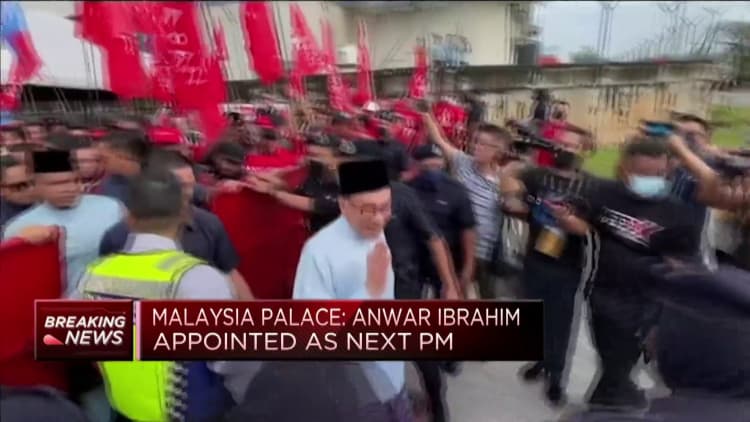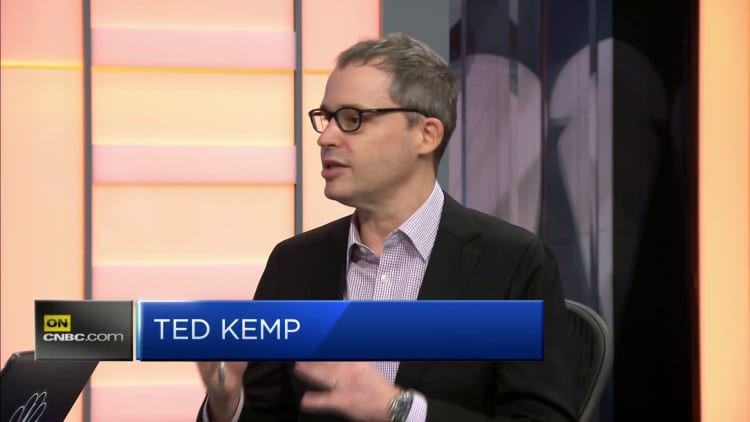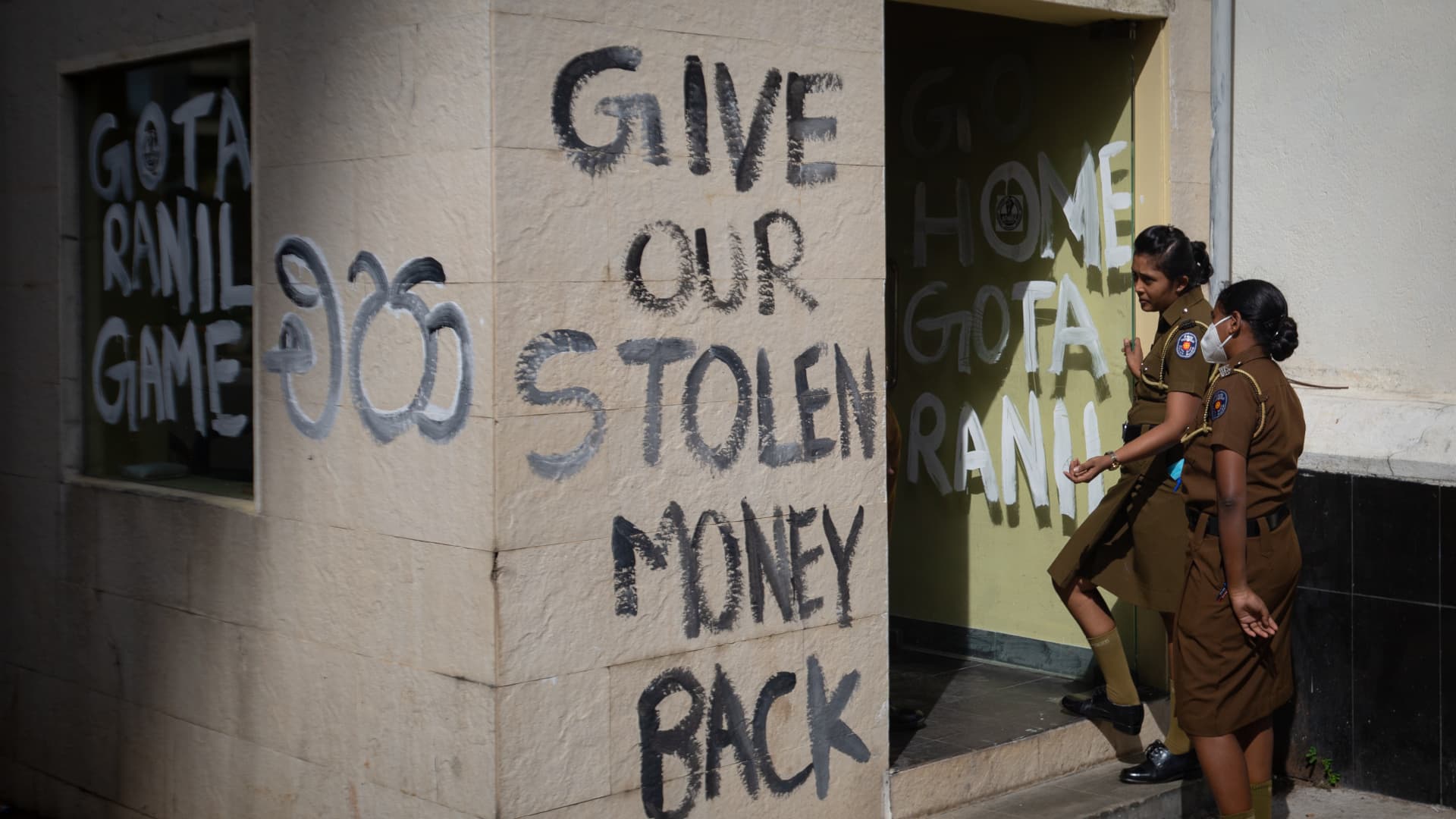Asia’s year in review: Who had it good — and who had it bad — in 2022
Police officers step into the vandalized gateway to Sri Lanka’s presidential palace in July. The country has been hit hard by an economic crisis.
Abhishek Chinnappa | Getty Images News | Getty Images
Curtis S. Chin, a former U.S. ambassador to the Asian Development Bank, is managing director of advisory firm RiverPeak Group. Jose B. Collazo is an analyst focusing on the Indo-Pacific region. Follow them on Twitter at @CurtisSChin and @JoseBCollazo.
As the new year approaches, we turn again to our annual look at Asia’s winners and losers. Government and business leaders in every major economy — China now included — may well hope 2023 is the year when draconian pandemic-related lockdowns become a matter of history.
In our 2021 annual review, we awarded “worst year in Asia” to Afghan women and girls — a consequence of the U.S. and its allies’ chaotic withdrawal from Afghanistan and the return of Taliban rule. “Best year” went to Asia’s Cold War warriors, as social media, “wolf warriors” and politicians helped spark a return to Cold War rhetoric amid worsening U.S.-China relations.
Now, with hopes that Covid is in retreat and that inflation will moderate in the year ahead, we take a last look at who had it good and who had it bad in 2022.
Best Year: Southeast Asia’s comeback kids — Marcos and Anwar
Perseverance proved a winner in 2022 as the year ended with Ferdinand “Bongbong” Marcos Jr. of the Philippines and Anwar Ibrahim of Malaysia becoming leaders of their respective countries. One salvaged a family legacy, the other moved from prison to power — storylines befitting a Netflix series.
In the Philippines, Marcos — the namesake son of his authoritarian father — won a landslide election in May for president, despite what detractors see as a family legacy of corruption and impunity. More than 35 years ago, in February 1986, the senior Marcos and his wife Imelda fled to Hawaii in exile, driven out by a People Power Revolution and a loss of U.S. support.

And in Malaysia, Anwar finally proved a winner in November, shedding the long-held descriptor of “prime-minister-in-waiting” to become his nation’s 10th prime minister. That followed decades marked by smear campaigns, imprisonment and backroom intrigue as the onetime deputy prime minister challenged vested interests with his vows to combat corruption.
The two now face the challenge of governing and moving their respective countries forward. Stay tuned for the next episode.
Good Year: Taiwan’s semiconductor chipmakers
In a year that saw tensions between the U.S and China reach a feverish peak when U.S. Speaker of the House Nancy Pelosi visited Taipei, the island’s sophisticated semiconductor industry ends the year in a good position. Taiwan’s chipmakers are more essential than ever.
Semiconductor chips lie at the heart of everything from computers to cars to smartphones. Underscoring the Taiwanese tech industry’s critical role, a Semiconductor Industry Association (SIA)/Boston Consulting Group 2021 study found that 92% of the world’s most advanced semiconductor manufacturing capacity is located in Taiwan. The other 8% was in South Korea.
TSMC headquarters in Hsinchu, Taiwan. The semiconductor manufacturer’s products lie at the heart of everything from automobiles to smartphones.
Bloomberg | Bloomberg | Getty Images
A rare bipartisan U.S. Congress has taken notice, passing in July 2022 the CHIPS and Science Act, which allocates $52 billion in federal funding to spur further domestic production of semiconductor chips. In December, the world’s dominant chipmaker, Taiwan Semiconductor Manufacturing Company (TSMC), announced plans for a second semiconductor chip plant in Arizona, raising to $40 billion what is already one of the largest foreign investments in U.S. history.
With numbers like those, Taiwan’s semiconductor industry ends the year on the move, still building ties and winning growing support from business and government in the United States and elsewhere.
Mixed Year: Asia’s ‘love’ for crypto
As in much of the world, investors in Asia — once bedazzled if not bewitched by the crypto industry — end the year in a mixed mood. Industry meltdowns have left many, including in government, wondering if the message of caveat emptor — buyer beware — is sufficient, and new regulations loom.
The crypto exchange FTX’s billions-dollar implosion set off alarm bells throughout the region. Singapore’s Temasek Holdings, which has written off its entire $275 million investment in the now-collapsed FTX cryptocurrency business, has suffered “reputational damage,” Deputy Prime Minister Lawrence Wong said.
FTX founder Sam Bankman-Fried is led by officers of the Royal Bahamas Police force following his arrest.
Mario Duncanson | Afp | Getty Images
Bad Year: Sri Lanka, the (one-time) pearl of South Asia
Even amid food insecurity and economic worries across much of Asia, the images of angry citizens storming the official residence of Sri Lanka’s President Gotabaya Rajapaksa and the Presidential Secretariat stand out in what was most decidedly a bad year for this one-time “pearl of South Asia.”
Sri Lanka continues to face a multidimensional crisis. A broken economy, depleted foreign currency reserves, high inflation — at one point reaching more than 70% — and power, fuel and food shortages made worse by the impact of the war in Ukraine, a growing “brain drain” and meager tourism numbers characterize this south Asian nation today.
Negotiations for an IMF deal remain complicated by large amounts of Sri Lankan debt held so by China, India and Japan.
By September, nearly 200,000 Sri Lankans had left the island nation, and thousands of would-be emigrants were planning to do the same in search of a brighter future elsewhere.
An IMF deal to restructure Sri Lanka’s debt could provide much needed cash and economic stability, but negotiations remain complicated by large amounts of Sri Lankan debt held so by China, India and Japan.
Worst year: China’s beleaguered, locked-down citizens
While China has taken pride in an extraordinarily low number of (officially reported) Covid-related deaths, the nation has also become a showcase for the negative consequences of efforts to contain the virus. In what should have been a good year for Chinese President Xi Jinping, he has seen the year close with a wave of Chinese discontent.
By year-end, anti-lockdown protests were reported in numerous cities, including at the world’s largest iPhone assembly factory in Zhengzhou, as China’s zero-Covid policy took its toll on the economy and everyday people’s mental health.

“We want freedom, not Covid tests,” became a common chant of some protesters, according to Reuters, as individuals “pushed the boundaries by speaking for change in a country where space for dissent has narrowed dramatically.”
The spark that set off the rare protests was news of the deaths of 10 people, including several children, in an apartment building fire in Urumqi in China’s Xinjiang province — in an area that had been locked down for several months. A storyline on social media that resonated across the country focused on the role that Covid controls might have played in those deaths.
Chinese citizens can take heart that those protests may well have had an impact. The Chinese government has begun to relax zero-Covid restrictions. Still, the nation continues to lag the world in opening and moving forward, and worries continue about the nation’s rate of vaccination among the elderly.
And so, even as hope has returned for a better year ahead, China’s beleaguered, locked-down citizens take the dubious honors of worst year in Asia 2022.
For all the latest health News Click Here

